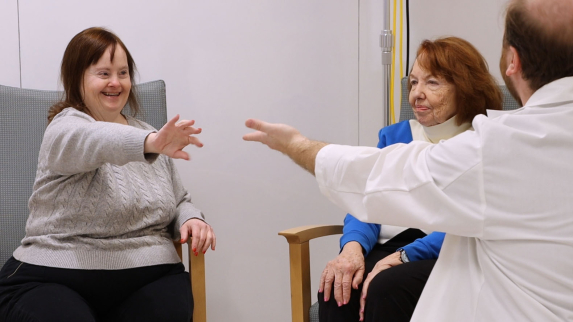Roughly 150,000 New Jersey residents have intellectual or developmental disabilities that hinder their ability to communicate with health care providers. But a pilot program from Rutgers Health has demonstrated that training can improve care for this vulnerable community. Members of Rutgers Robert Wood Johnson Medical School and the Ernest Mario School of Pharmacy collaborated on the virtual education program that exposed health care students and practitioners to a mix of expert instruction and dramatized simulations of common interactions between caregivers and patients with intellectual or developmental disabilities.
“Working with intellectual or developmental disabilities is rarely part of standard training for health care providers,” said Amy Fisher, program director for Rutgers Project ECHO (Extension for Community Healthcare Outcomes). “We wanted to reduce the uncertainty of working with this patient population, model communication and humanize care so frontline teams feel equipped when a patient with intellectual or developmental disabilities walks through the door.”
Across 16 sessions, 212 unique participants reported a 32.6% gain in knowledge, and 45% said they planned changes in how they screen, educate and coordinate care. After sessions, 90% of respondents said their knowledge increased, 92% would recommend the format to peers, and 88% reported more opportunities to collaborate with other providers. To read the full story.

